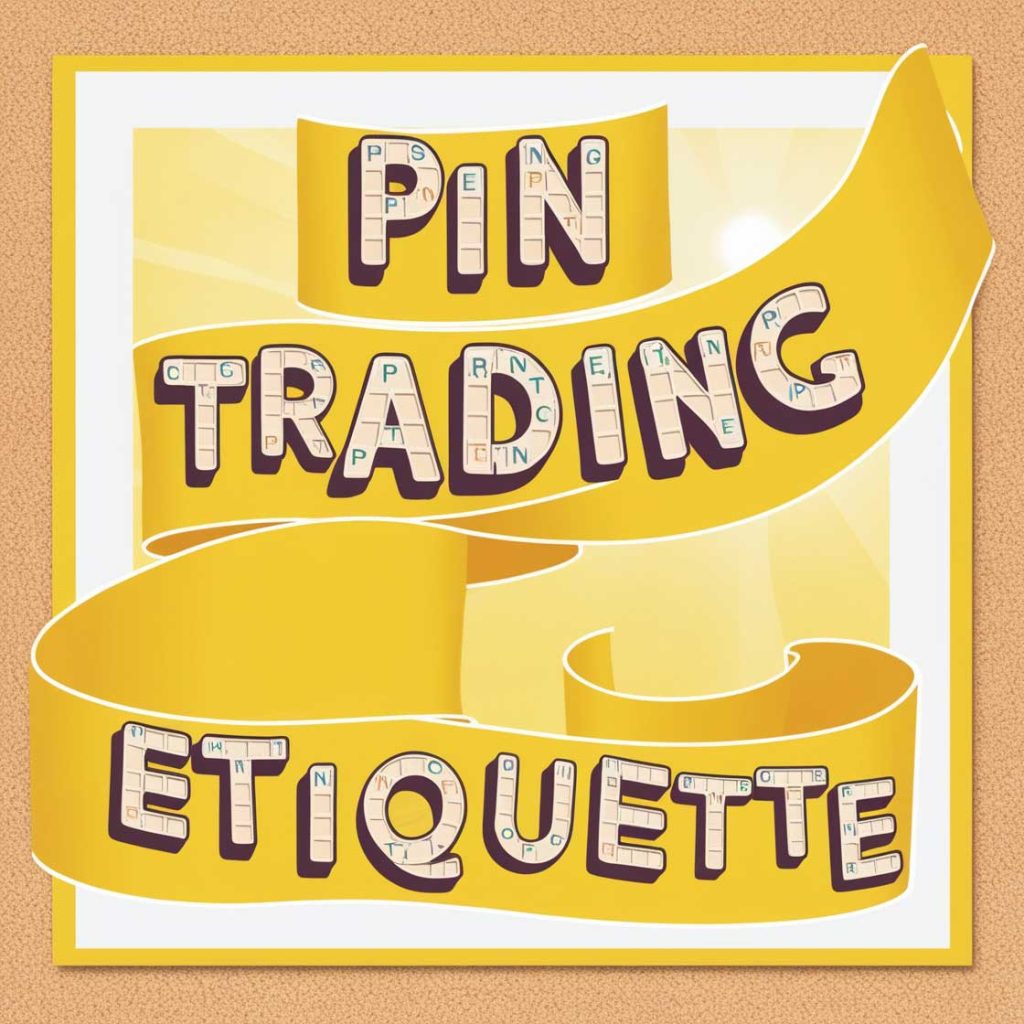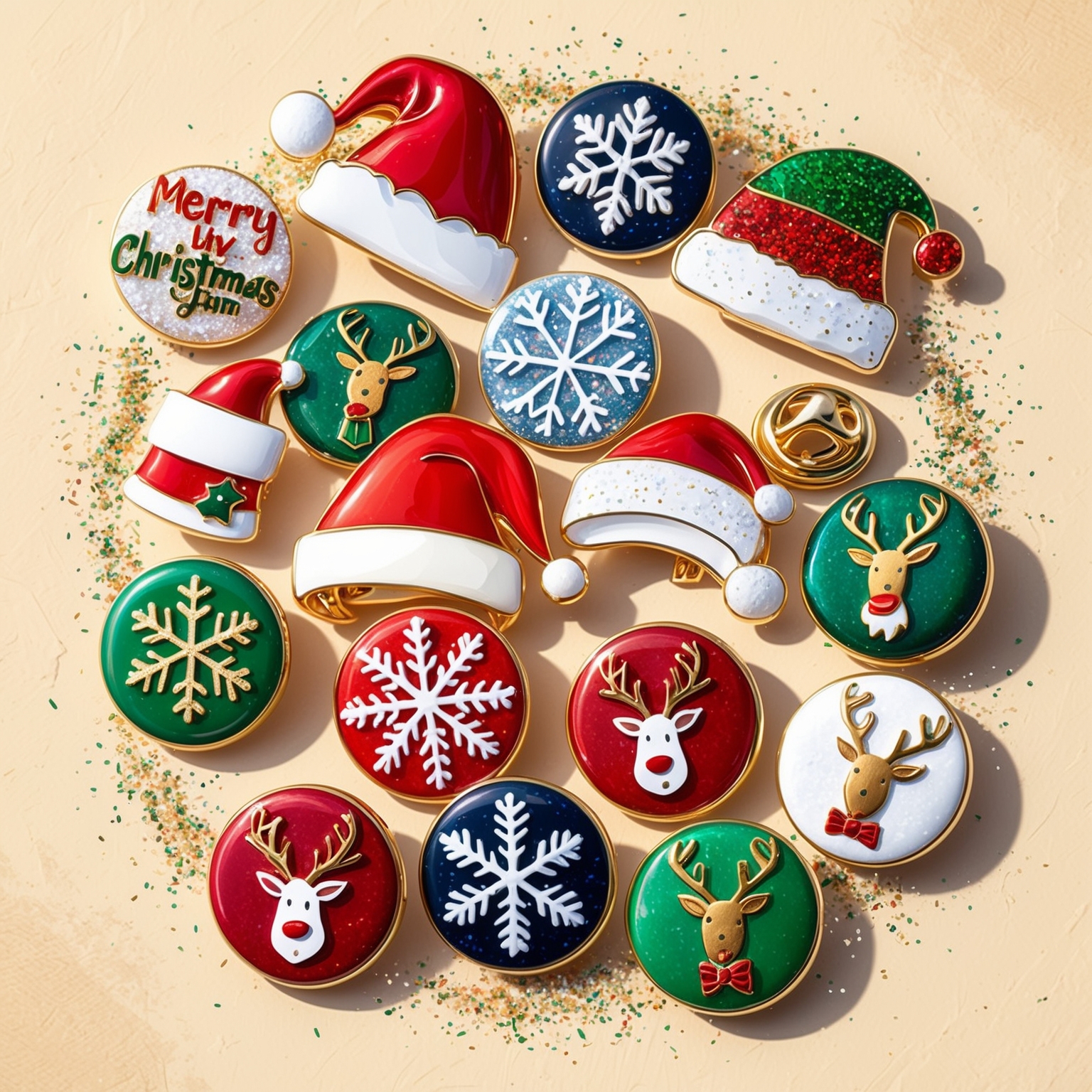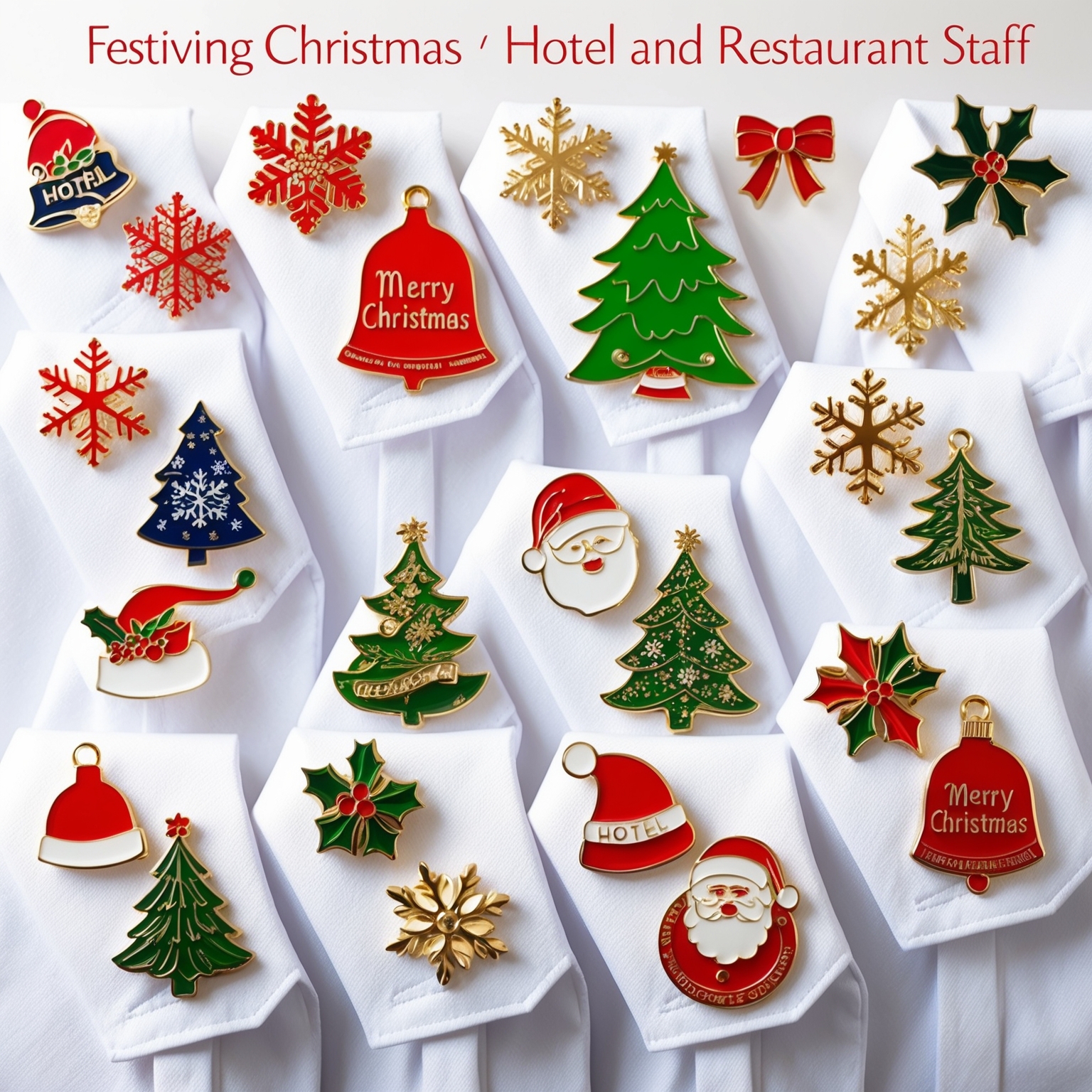In the world of sports memorabilia, few activities bring collectors together like pin trading. It’s not just about acquiring rare or unique pieces for your collection; it’s about the shared experience of meeting fellow enthusiasts, swapping stories, and sometimes even negotiating deals. For many sports collectors, pin trading is as much a social activity as it is a way to enhance their personal collections. It can happen anywhere—from sports events and memorabilia conventions to online forums and local gatherings.
But like any activity that involves exchanging valuable items, pin trading has its own set of unwritten rules and guidelines that ensure fairness, respect, and mutual satisfaction. Whether you’re new to the world of pin trading or an experienced collector looking to hone your skills, understanding proper etiquette and best practices is crucial. It’s what keeps the trading environment friendly, fun, and fair for everyone involved.
In this comprehensive guide, we’ll explore the essential etiquette and best practices for pin trading. From basic principles of fair play to strategies for making great trades, this article covers everything you need to know to become a respected and successful trader in the sports collecting community.
What is Pin Trading?
Before diving into the details of etiquette, let’s clarify what pin trading is all about. Pin trading refers to the act of exchanging collectible pins—typically sports-related—between collectors. These pins often feature team logos, event logos (like the Olympics or World Series), mascots, or commemorative designs for specific games, players, or milestones. The goal is to build a diverse collection that reflects your interests, whether it’s tied to a specific sport, team, player, or era.
Pin trading can be formal or informal. You may encounter organized events at sports games or collector conventions where trading is actively encouraged, with specific areas designated for trading activities. Conversely, trading can happen more casually at smaller gatherings or even between two people who meet at a game. In the digital age, online pin trading has also flourished, with platforms like social media groups, dedicated forums, and marketplaces connecting collectors from around the world.
Why Etiquette Matters in Pin Trading
Like any collectible hobby, pin trading thrives on relationships, trust, and mutual respect. Bad experiences—like unfair trades, lack of transparency, or rude behavior—can discourage collectors from engaging with others and negatively impact the broader community. Following proper etiquette ensures that everyone has a positive experience, regardless of the outcome of a particular trade.
Pin trading is not just about making a deal—it’s about creating connections with fellow sports fans and collectors. Your reputation as a fair, respectful trader can help you build long-term relationships and open doors to future trading opportunities.
1. Understanding Value in Pin Trading
One of the fundamental aspects of pin trading is understanding the value of the pins you’re trading. Not all pins are created equal—some are mass-produced, while others are limited edition or hard to find, making them more valuable. Understanding the value of a pin allows you to trade fairly and avoid feeling shortchanged or unintentionally taking advantage of another trader.
Factors That Determine Pin Value
Several factors influence the value of a pin in the trading community. Here are the key elements to consider:
- Rarity: The rarity of a pin is one of the most significant factors affecting its value. Limited-edition pins, pins produced for specific events or milestones, and pins that were part of a small production run tend to be more valuable due to their scarcity.
- Condition: The condition of the pin plays a significant role in its value. Pins in mint condition, free from scratches, tarnishing, or damage, are more valuable than those that show signs of wear. Always check for any damage before making a trade.
- Demand: Some pins are in higher demand than others, based on team popularity, event significance, or the cultural impact of a particular player or mascot. Pins from championship games or featuring legendary players tend to be more sought after, which increases their value.
- Age: Older pins, especially those from iconic events or representing vintage team logos, are often more valuable due to their historical significance. However, age alone doesn’t always determine value—it must be paired with rarity and demand.
- Original Packaging: Pins that come in their original packaging or include original backings are often more valuable than loose pins. The original packaging can act as a form of authentication and contribute to the pin’s overall appeal to collectors.
Pricing Your Pins
Whether you’re trading at an event or online, it’s helpful to have a rough idea of the monetary value of your pins. Some collectors use price guides or research the current market to determine value. Websites like eBay can give you an idea of what similar pins are selling for, but keep in mind that the trading value of a pin may differ from its selling value in a marketplace.
It’s also important to remember that value is subjective. One collector may place higher sentimental value on a pin due to personal connections, while another may focus strictly on monetary worth. Always be transparent about your pin’s condition and any relevant history when discussing a trade.
2. Essential Etiquette for Pin Trading
Good etiquette is the cornerstone of successful pin trading. Whether you’re trading in person or online, following these guidelines will help ensure that you’re viewed as a fair and respectful trader in the community.
1. Be Honest About Pin Condition
Transparency is key when trading pins. Always be upfront about the condition of your pin, especially if it has any flaws, scratches, or damage. Traders appreciate honesty, and disclosing any imperfections beforehand builds trust. Misrepresenting the condition of your pins can quickly damage your reputation and lead to negative experiences for both parties.
For example, if a pin is missing its original backing or has a slight scratch, mention this during the trade negotiations. Most traders will appreciate the honesty and may still be willing to make the trade, but failing to disclose such details can lead to disappointment and resentment.
2. Respect the Other Person’s Collection
When entering into a trade, it’s essential to show respect for the other trader’s collection. Even if you’re not interested in a particular pin or don’t find it valuable, avoid making dismissive or negative comments about someone else’s pins. What may seem insignificant to you could be a cherished item in their collection.
In in-person trades, it’s also important to handle the other person’s pins with care. Always ask for permission before touching their pins, and avoid being too rough or careless when examining them. Treat every pin with respect, whether it’s a rare limited edition or a common pin.
3. Be Polite and Courteous
Pin trading, like any social activity, requires basic politeness and courtesy. Simple acts like saying “please” and “thank you” go a long way in building positive relationships with other collectors. Even if a trade doesn’t work out, ending the conversation on a friendly note leaves the door open for future trades.
If you’re trading at a busy event, be mindful of other traders waiting to make trades. Keep conversations and negotiations moving along to allow everyone a chance to participate. Being considerate of others’ time will enhance the overall trading experience for everyone.
4. Don’t Pressure or Rush a Trade
One of the quickest ways to sour a potential trade is by pressuring the other person into making a deal. Pin trading should be a relaxed and enjoyable experience, not a high-pressure negotiation. Give the other person time to consider your offer, and avoid using aggressive tactics to push them into a trade they’re unsure about.
If a fellow trader needs more time to think about the trade or wants to check the value of their pins before proceeding, be patient. Forcing someone into a trade will only lead to negative feelings and could tarnish your reputation as a trader.
5. Know When to Walk Away
Not every trade will work out, and that’s okay. Sometimes the pins you’re interested in are too valuable for a fair exchange, or perhaps the other collector isn’t willing to part with a specific pin. It’s important to know when to walk away from a trade that doesn’t feel right.
If a trade isn’t meeting your expectations, politely decline and thank the other person for their time. Walking away from a trade doesn’t have to be a negative experience, and keeping the interaction friendly means you may have opportunities to trade with that person again in the future.
3. Best Practices for Making Successful Trades
While pin trading is a fun and social activity, it’s also an art that requires practice and strategy to master. As you become more experienced in trading, these best practices will help you navigate the process effectively and make successful trades.
1. Be Prepared with Extras for Trading
If you’re attending a large sports event, convention, or collector meet-up, it’s always a good idea to bring extra pins specifically for trading. Not all collectors will be interested in the same type of pins, so having a diverse selection increases your chances of finding a successful trade. Bringing duplicates or lower-value pins for casual trades allows you to save your rare or valuable pins for more significant opportunities.
It’s also helpful to carry some non-sports pins for collectors who may be interested in pop culture or mascot-related pins. Diversity in your trade stock ensures that you have something for everyone.
2. Know the Market and Trends
Just like in other collectible markets, trends in pin trading can shift over time. Stay informed about current trends in the pin community by following online groups, attending events, and reading collector guides. Knowing which pins are in high demand allows you to make trades that reflect the current market and increase your chances of acquiring valuable pins.
For example, a pin commemorating a championship win or an event tied to a popular player may increase in value as demand rises. Being aware of these trends helps you make informed decisions about which pins to hold onto and which to trade.
3. Practice Fairness in Trades
A fair trade leaves both parties satisfied, so always strive to make balanced exchanges. While it can be tempting to trade for a pin that holds personal value to you, ensure that the pins you offer in return are of similar value, rarity, or significance.
If you’re uncertain about whether a trade is fair, ask the other person if they’re comfortable with the exchange. Open communication ensures that both parties are satisfied, and it fosters a positive trading relationship that could lead to future trades.
4. Don’t Be Afraid to Negotiate
While politeness and fairness are crucial, pin trading can also involve some level of negotiation. If you’re interested in a pin that’s of higher value than what you have to offer, don’t be afraid to negotiate by offering multiple pins in exchange or sweetening the deal with a rare or valuable item.
Negotiating doesn’t have to be adversarial—it can be a fun and respectful part of the trading process. Just ensure that both parties are comfortable with the outcome before finalizing the trade.
5. Keep Records of Your Trades
As your pin trading activity increases, it can become challenging to keep track of the trades you’ve made and the value of the pins you’ve acquired. Keeping a record of your trades is a great way to maintain an organized collection and monitor the growth of your hobby.
Consider keeping a logbook or digital record where you list the pins you’ve traded, the dates of trades, and any details about the event or collector you traded with. This not only helps you keep track of your collection but also serves as a valuable reference if you need to verify a pin’s history or authenticity in the future.
4. Navigating Online Pin Trading
In addition to in-person events, online pin trading has become increasingly popular, offering collectors the opportunity to trade with people from all over the world. However, online trading comes with its own set of challenges, such as verifying the condition and authenticity of pins without seeing them in person. Here’s how to navigate the online trading landscape:
1. Choose Trusted Platforms
There are several online platforms dedicated to pin trading, ranging from social media groups to specialized collector forums. It’s important to choose trusted platforms that have active moderation and a well-established community. Websites like PinPics or dedicated Facebook groups for pin collectors are great places to start.
When trading on general platforms like eBay, Etsy, or other marketplace websites, check the seller’s reviews and ratings to ensure they have a good reputation in the community.
2. Verify Authenticity and Condition
One of the biggest challenges of online trading is verifying the authenticity and condition of pins without seeing them in person. Always request detailed photos of the front and back of the pin, and ask the seller or trader to provide information about the pin’s condition, such as any signs of wear, missing backings, or packaging.
Additionally, if you’re trading for rare or limited-edition pins, consider asking for proof of authenticity, such as certificates or original packaging, to avoid counterfeit pins.
3. Protect Yourself from Scams
While the majority of online traders are honest and fair, there’s always a risk of encountering scams in any online marketplace. To protect yourself, never send pins without first receiving confirmation from the other party that they’ve shipped their pins. For trades involving high-value pins, consider using a trusted middleman service to facilitate the trade.
It’s also helpful to trade with established members of online communities who have a positive reputation and history of successful trades. Don’t be afraid to ask for references or check for reviews before completing a trade with someone new.
5. Expanding Your Network and Learning from Others
One of the most rewarding aspects of pin trading is the opportunity to connect with fellow collectors and learn from their experiences. The more you engage with the community, the more you’ll grow as a trader and collector.
1. Join Collector Groups and Forums
Whether you’re a rookie or a seasoned collector, joining a collector group or forum allows you to share knowledge, trade tips, and engage with other pin enthusiasts. Many online communities are dedicated to specific types of pins, such as sports teams, the Olympics, or mascot pins, making it easy to connect with collectors who share your interests.
In addition to online groups, local sports clubs or fan groups may also have pin trading circles where you can meet fellow collectors in person. These communities are a valuable resource for learning more about the history of pins, discovering new pins to collect, and finding opportunities for trades.
2. Attend Pin Trading Events
Attending pin trading events is one of the best ways to immerse yourself in the community. Many sports events, especially major championships or tournaments, have designated pin trading areas where collectors gather to trade and talk about their collections.
Pin trading events are not just about making trades—they’re also about celebrating the culture of collecting. You’ll have the chance to see rare and unique pins, learn about the history of pin trading, and meet collectors from all over the world who share your passion for the hobby.
The Key to Successful Pin Trading
Pin trading is a rewarding hobby that brings sports fans and collectors together in a shared appreciation for history, design, and team loyalty. By following essential etiquette and best practices, you’ll ensure that every trade is a positive experience, allowing you to build lasting relationships with fellow collectors.
From understanding pin values and fair trades to navigating online trading and attending events, this guide covers everything you need to know to become a successful and respected pin trader. By embracing the spirit of community, fairness, and mutual respect, you’ll enjoy the journey of pin trading as much as the pins themselves.
If you are interested in ordering some high-quality lapel pins, feel free to call us at our Toll free number 1-877-513-4811 or fill out one of our FREE QUOTE FORMS.



